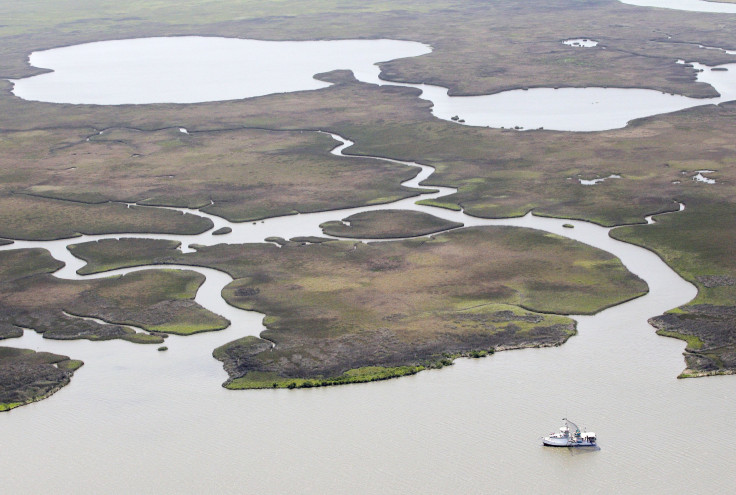New EPA Water Rules That Aim To Protect Nation's Wetlands And Streams Blocked By House

The U.S. House of Representatives passed a bill Tuesday to block the Environmental Protection Agency from clarifying which bodies of waters are federally protected. The largely symbolic measure would prevent the agency from implementing a proposed rule to explain the government’s authority under the Clean Water Act.
Supporters of the measure in the Republican-controlled House said the EPA’s plan was a massive government "power grab" that would ensnare private property owners in miles of red tape. Many smaller streams, ditches and ponds are regulated at the state and local levels, but policymakers warned the EPA proposals would sweep those waterways into the federal government’s jurisdiction.
The water rule “will adversely affect the nation’s economy, threaten jobs, invite costly litigation, and restrict the rights of landowners, states and local governments to make decisions about their lands,” Rep. Bill Shuster, R-Pa., who chairs the House committee on transportation and infrastructure, said in an earlier statement.
The EPA has said that the rules, which it proposed with the Army Corps of Engineers in March, do not greatly expand the government’s existing authority under the 1972 law. It proposed the measures because for the past decade, industry, agriculture and environmental groups and state and local officials have been asking for certainty on federal stream and wetlands regulations.
The proposed rules explain that federal authorities are allowed to protect season- and rain-dependent streams and wetlands near rivers and streams. Other types of waters with more ambiguous connections to downstream water supplies will be evaluated on a case-by-case basis.
Proponents of the EPA’s plan said that federal protections are critical for containing harmful agricultural runoff -- the flow of fertilizer and manure that washes from farms and feedlots and into waterways. In the Great Lakes region, runoff is largely to blame for the rash of toxic algal blooms in recent years.
At the House session, Rep. Marcy Kaptur, D-Ohio, brandished a jar of green algae-rich water from Lake Erie as she argued against passing the anti-EPA measure, the Cleveland Plain Dealer reported. Kaptur represents Toledo, a lakeside city that was forced to shut off its tap water supplies in early August because of toxic algae.
She said the lake’s algae problem shows why the EPA should protect waterways that affect downstream communities. In farming regions, state rules and enforcement for runoff are often lax, environmental policy experts assert, in part because of pushback from agricultural lobbying interests, but also because of limited funding and staffing at regulatory agencies.
“What happened to us is a severe warning for our country and we’d better pay attention,” Kaptur said on the House floor, the Plain Dealer reported.
The Obama administration has threatened to veto the House measure in the unlikely event that it clears the Democrat-led U.S. Senate. “In the end, [the bill] would sow more confusion and invite more conflict at a time when our communities and businesses need clarity and certainty around clean water regulation,” the White House wrote Monday, The Hill reported.
© Copyright IBTimes 2025. All rights reserved.





















